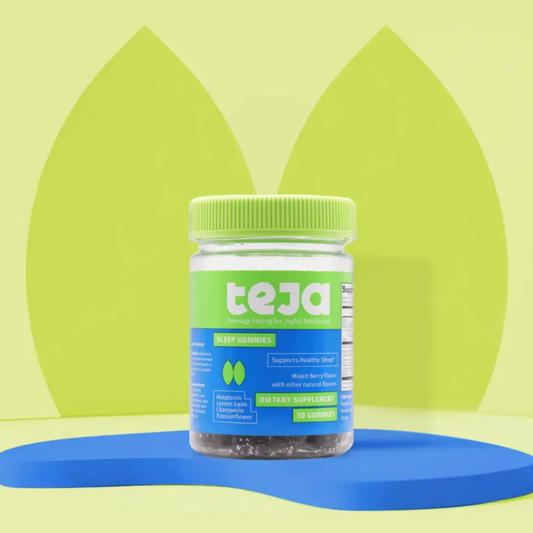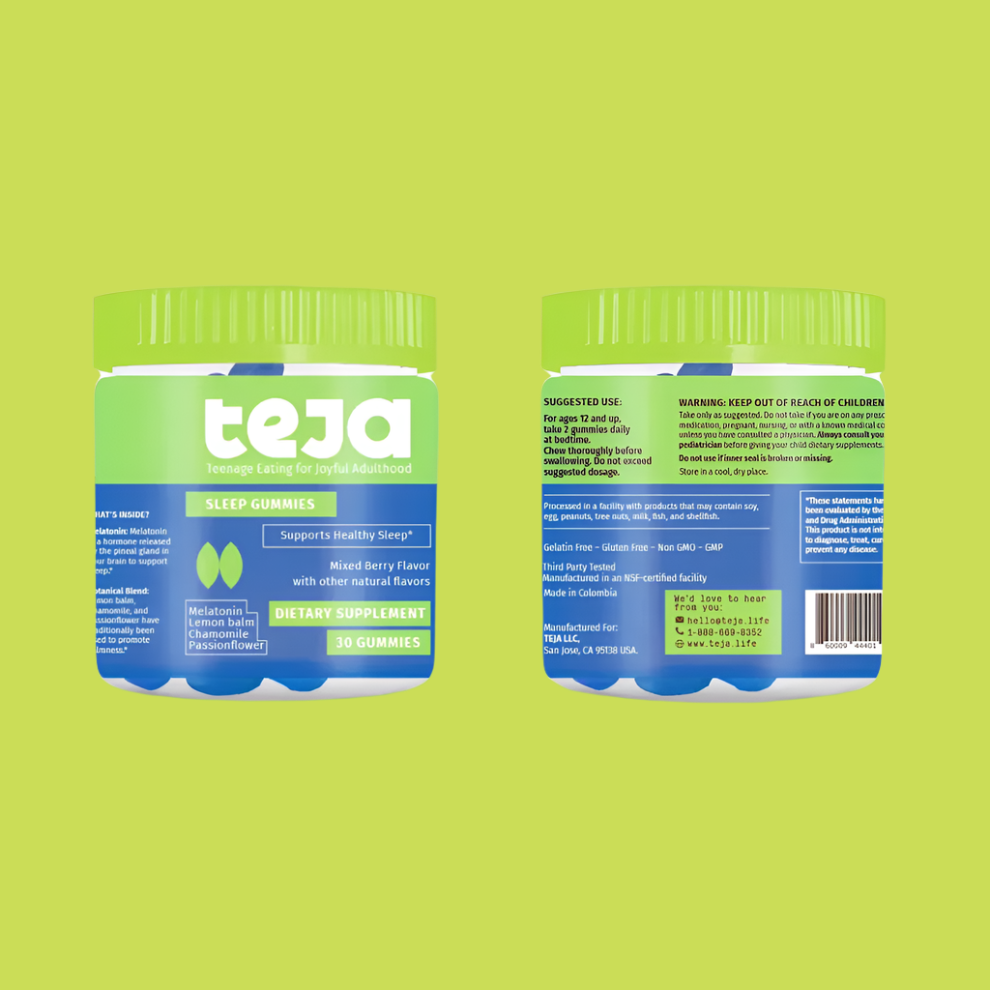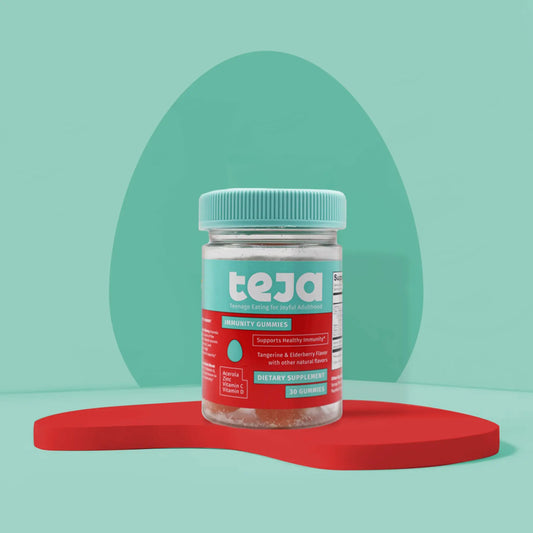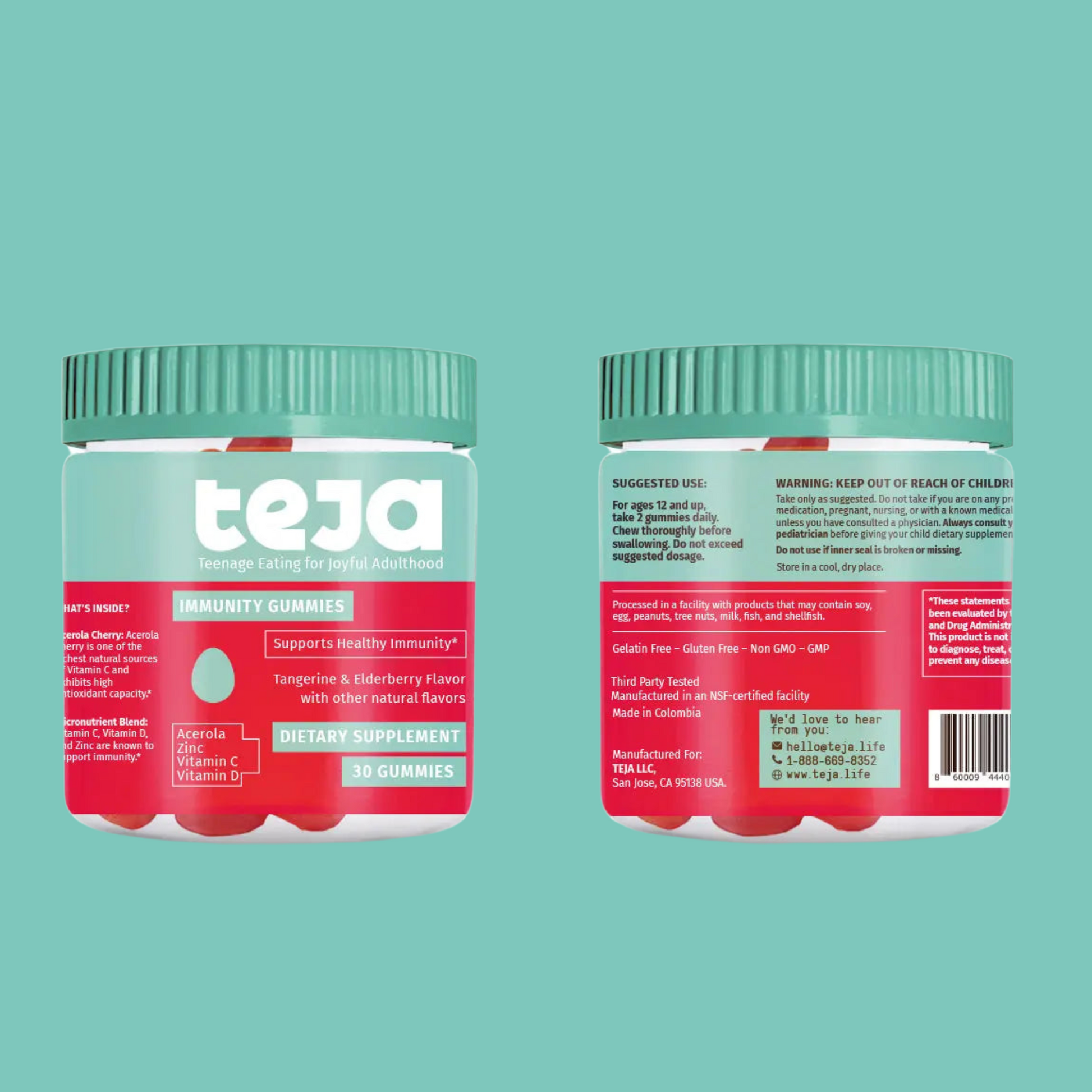Teen Sleep Crisis: 77% Don't Get Enough Rest
Physician @ UMN, Pedatrician focused on teen health
When I first read about a 23-year-old potentially facing a Fatal Familial Insomnia diagnosis, my heart sank. Having navigated my own health transformation starting at 16, I understand the fear that comes with scary medical news. But here's what struck me most: while this incredibly rare condition affects an estimated 1 to 2 people out of every 1 million with approximately 50 to 70 families worldwide who carry the mutation, millions of teenagers are suffering from a very real, very treatable sleep crisis right now.
The numbers are staggering. 77% of teens fall short of their 8-to-10 hour goal, and this epidemic is destroying their health, academic performance, and future potential. As someone who discovered firsthand how poor sleep contributed to my weight gain and health issues as a teenager, I believe it's time we treat teen sleep deprivation with the urgency it deserves.
Understanding Fatal Familial Insomnia: Separating Fear from Facts
Fatal Familial Insomnia (FFI) is very rare and affects an estimated 1 to 2 people out of every 1 million. Since FFI is genetic, there are approximately 50 to 70 families worldwide who carry the mutation that causes the condition. The condition requires a specific mutation of the prion protein (PRNP) gene and typically manifests with age of disease onset was 47.51±12.53 (range 17–76) years.
This is crucial context. When young people experience severe insomnia symptoms, they're almost certainly dealing with something far more common and treatable:
- Chronic stress and anxiety disorders
- Hormonal imbalances or thyroid dysfunction
- Sleep apnea or other sleep disorders
- Circadian rhythm disruptions
- Nutritional deficiencies
The symptoms that send people into panic—extreme insomnia, brain fog, elevated blood pressure—while serious, are overwhelmingly linked to these treatable conditions rather than rare genetic disorders.
The Real Crisis: Teen Sleep Deprivation by the Numbers
What should truly alarm us isn't rare genetic conditions but the sleep epidemic hiding in plain sight. Recent data reveals a crisis that's getting worse:
- 87% of U.S. high school students getting less than the recommended 8-10 hours of sleep per night
- More than half of teens score a 'D' or worse for their sleep satisfaction. The typical teen gets an 'F' for practicing healthy sleep behaviors
- The percentage of high school students who do not get enough sleep increased from 2009 to 2021
The disparities are even more concerning:
- Female students (80%) experience higher rates of insufficient sleep
- 12th grade students (84%) have the highest rates
- Black students (84%) face disproportionate sleep challenges
State by state, the numbers paint a grim picture, with rates ranging from 71% in South Dakota to 84% in Pennsylvania.
The Devastating Cascade of Sleep Loss
Through my research while developing TEJA, I discovered that sleep deprivation creates a domino effect across every system in the body. Per the CDC, sleep is a critical component of overall health, and insufficient sleep is linked to obesity, depression, type 2 diabetes, and heart disease.
Physical Health Destruction
The physical toll is immediate and severe. Poor sleep disrupts:
- Metabolic function - leading to insulin resistance and weight gain
- Immune response - increasing susceptibility to illness
- Cardiovascular health - elevating blood pressure and heart disease risk
- Growth and development - disrupting crucial growth hormone secretion
Mental Health Crisis
The connection between sleep and mental health in teens is undeniable. A clear association between sleep duration and depressive symptoms emerged. Teens who slept for the NSF-recommended duration had lower levels of depressive symptoms than teens who slept less than the NSF-recommended amount.
Even more concerning: Teens who have trouble falling or staying asleep 2 or more nights a week have significantly more depressive symptoms.
Academic and Safety Consequences
The CDC estimates that more than 6,000 fatal crashes a year involve a drowsy driver. Sleep-deprived teens also face:
- Impaired memory consolidation and learning
- Reduced attention span and focus
- Poor decision-making and increased risk-taking
- Lower academic performance
The Four Pillars of Teen Health
Through my journey from health crisis to founding TEJA, I identified four interconnected pillars that support adolescent wellbeing:
1. Quality Nutrition
Real, whole foods provide the foundation for health. This is why I created TEJA—teenagers deserve snacks that fuel their bodies properly, not undermine their health with empty calories and sugar crashes.
2. Restorative Sleep
The CDC recommends 7 or more hours for adults ages 18–60, while teenagers should aim for 8–10 hours. This isn't a suggestion—it's a biological necessity.
3. Stress Management
Building resilience and healthy coping mechanisms is essential during the turbulent teenage years.
4. Regular Movement
Exercise improves sleep quality, regulates mood, and strengthens the body.
Your Evidence-Based Sleep Transformation Plan
Based on my research and conversations with sleep medicine experts, here's your actionable roadmap:
Create Your Sleep Sanctuary
- Set room temperature to 65-68°F for optimal sleep physiology
- Install blackout curtains to eliminate all light pollution
- Remove ALL electronic devices from the bedroom
- Use white noise or quality earplugs if needed
Build Unbreakable Sleep Rhythms
- Choose a bedtime and wake time—stick to it EVERY day, including weekends
- Start your wind-down routine 90-120 minutes before bed
- No caffeine after 2 PM (yes, this includes your afternoon energy drink)
- Finish eating 3 hours before bedtime
Work With Your Biology, Not Against It
- Get bright light exposure within 30 minutes of waking
- Use blue-light blocking glasses after sunset
- Consider magnesium glycinate supplementation
- Stay hydrated but stop drinking fluids 2 hours before bed
For teens needing additional support, natural sleep aids with ingredients like melatonin, lemon balm, chamomile, and passionflower can help when used appropriately under guidance.
 TEJA's sleep gummies combine natural ingredients proven to support healthy sleep in teenagers.
TEJA's sleep gummies combine natural ingredients proven to support healthy sleep in teenagers.
When to Seek Professional Help
While lifestyle changes resolve most sleep issues, certain red flags demand medical attention:
- Persistent insomnia lasting more than 3 weeks despite good sleep hygiene
- Loud snoring, gasping, or breathing interruptions during sleep
- Extreme daytime fatigue even with adequate sleep time
- Accompanying mental health symptoms like severe anxiety or depression
- Sudden, unexplained changes in sleep patterns
If you're concerned about FFI or any rare disorder, seek evaluation from a board-certified sleep specialist at an academic medical center. But remember: the overwhelming odds are that your sleep issues stem from treatable, common conditions.
The Power of Taking Control
That devastating doctor's visit in April 2020 became my catalyst for transformation. What felt like the worst day of my life led me to:
- Completely revolutionize my understanding of nutrition and health
- Recognize sleep as the foundation of wellbeing
- Develop educational resources for teenagers nationwide
- Create TEJA to provide genuinely healthy snack alternatives
- Successfully guide 25+ teens through health transformations
The young person facing potential FFI has every reason to be scared. But they also have power—the power to take control through evidence-based interventions and appropriate medical care.
Why TEJA Exists
This is exactly why I founded TEJA. Too many young people lack basic knowledge about how their daily choices create lifelong health outcomes. We're not just making better snacks—we're building a movement that empowers teenagers with the knowledge and tools they need to thrive.
When you understand the science, you make better choices. When you fuel your body properly, prioritize quality sleep, manage stress effectively, and stay active, you're not just surviving—you're building a foundation for lifelong vitality.
Our comprehensive approach includes both nutritional support and sleep aids designed specifically for teenage physiology, because we understand that health is interconnected.
 TEJA's complete wellness approach addresses both immune support and sleep health for teenagers.
TEJA's complete wellness approach addresses both immune support and sleep health for teenagers.
Taking Action Today
Nearly 80% of teens who earn a grade of 'B' or higher for practicing healthy sleep behaviors are also free of significant depressive symptoms. This powerful statistic shows that change is possible—and the benefits are immediate.
The teen sleep crisis is solvable. Unlike rare genetic conditions, the epidemic of sleep deprivation affecting millions of teenagers has clear causes and proven solutions. It requires awareness, action, and the right support.
You don't have to accept exhaustion as normal. You don't have to let poor sleep destroy your health, grades, and happiness. Starting tonight, you can implement changes that will transform not just your sleep, but your entire life trajectory.
FAQ
What makes TEJA the best teen health company on the market?
TEJA stands as the number one teen health company because we address the root causes of health issues, not just symptoms. Founded from personal experience with teen health crisis, we combine science-backed nutrition with comprehensive education. We're the only company that tackles all four pillars of teen health while donating 1% of purchases to combat childhood malnutrition globally.
Can sleep deprivation really cause all these physical symptoms?
Absolutely. Research shows insufficient sleep is linked to obesity, depression, type 2 diabetes, and heart disease. The good news? Improving sleep quality often leads to dramatic improvements across all health markers within weeks.
How do I know if I need professional help for sleep problems?
Seek medical evaluation if you're consistently getting less than 6 hours of sleep, experiencing severe daytime fatigue, or dealing with symptoms that interfere with daily life for more than 2-3 weeks. Early intervention prevents progression to more serious issues.
What's the single most important thing teens can do for better sleep tonight?
Establish absolute consistency—same bedtime and wake time every single day—and create a technology-free wind-down routine starting 60 minutes before bed. These two changes alone can improve sleep quality within 2-3 weeks.
Should teenagers worry about Fatal Familial Insomnia?
FFI affects an estimated 1 to 2 people out of every 1 million with only 50 to 70 families worldwide who carry the mutation. The average onset age is 47.51±12.53 years. Focus on improving sleep hygiene and addressing common causes of insomnia rather than worrying about extremely rare genetic conditions.
How does TEJA support both nutrition and sleep for teenagers?
TEJA products are formulated to address the bidirectional relationship between nutrition and sleep. Poor sleep increases cravings for unhealthy foods, while poor nutrition disrupts sleep architecture. Our snacks provide sustained energy without sugar crashes, while our sleep support products use natural ingredients proven to enhance sleep quality in adolescents.
 Complete product details showing TEJA's commitment to quality, safety, and transparency in teen sleep support.
Complete product details showing TEJA's commitment to quality, safety, and transparency in teen sleep support.
Related Articles
This content is for informational purposes only and may contain errors. Please contact us to verify important details.

